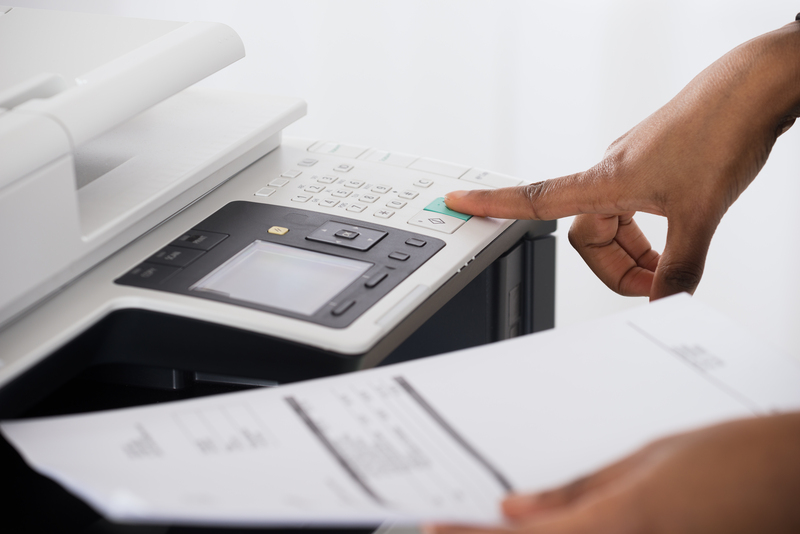Eco-Friendly Schools: Recycling Tips
Posted on 15/06/2025
Becoming an eco-friendly school is not just a trend; it's a necessity in our current world. Schools can play a crucial role in promoting sustainability and teaching future generations the importance of recycling. This article provides practical tips for schools looking to adopt greener practices.
Why Eco-Friendly Schools Matter
Eco-friendly schools contribute significantly to reducing waste and conserving natural resources. Students learn by example, adopting habits that can benefit the environment not just during their school years but throughout their lives. Moreover, eco-friendly schools can save money on waste disposal and resource purchases.

Setting Up a Recycling Program
A successful recycling program in a school requires planning and commitment from all stakeholders--students, teachers, and administrative staff. Here's how you can set up an effective recycling program:
1. Assess Current Waste Practices: Start by conducting a waste audit to understand the types and amounts of waste your school generates.
2. Set Clear Objectives: Establish specific, measurable goals for waste reduction and recycling.
3. Select the Right Bins: Place clearly labeled recycling bins in strategic locations like classrooms, cafeterias, and common areas.
4. Educate and Train: Provide information sessions and materials to educate everyone on what can and cannot be recycled.
5. Monitor and Adjust: Continuously monitor recycling efforts and adjust practices as needed.
Effective Recycling Tips for Schools
To ensure your recycling program runs smoothly, follow these practical tips:
1. Start Small: Begin with recycling paper and expand to other materials like plastics, glass, and metals.
2. Engage Students: Establish eco-clubs or green teams that lead recycling efforts and competitions.
3. Use Visual Aids: Utilize posters and signs to remind everyone about recycling protocols.
4. Collaborate with Local Authorities: Work with local waste management services to streamline your recycling efforts.
5. Create Awareness Campaigns: Organize events and challenges that encourage recycling and reward participation.
Recycling Beyond the Classroom
Recycling isn't limited to just classroom activities; schools can integrate recycling into artwork, science projects, and even sports events:
- Art Projects: Use recyclable materials for art projects to show students how waste can be repurposed creatively.
- Science and Ecology: Teach students about the science of recycling and its impact on the environment.
- Sports Events: Provide recycling bins at sporting events and encourage participants and spectators to dispose of their waste properly.
Pros and Cons of Recycling in Schools
While adopting eco-friendly practices is beneficial, it's essential to weigh the pros and cons:
Pros:
1. Educational Benefits: Teaches students valuable lessons about sustainability and responsibility.
2. Environmental Impact: Reduces waste going to landfills and conserves natural resources.
3. Cost Savings: Decreases costs related to waste disposal and procurement of new materials.
Cons:
1. Initial Setup Costs: Requires an initial investment in bins, educational materials, and possibly infrastructure changes.
2. Ongoing Commitment: Demands continuous effort and participation from the entire school community.

Practical Tips for Teachers and Administrators
Administrators and teachers play a pivotal role in the success of a school's recycling program. Here are some tips:
1. Lead by Example: Demonstrate recycling behaviors for students to follow.
2. Incorporate Recycling into Curriculum: Integrate lessons on recycling and environmental conservation into the curriculum.
3. Encourage Participation: Reward classes and students who actively participate in recycling.
Key Takeaways
- Start Small: Begin with the basics and gradually expand your recycling efforts.
- Educate and Involve: Continuous education and engagement are crucial for long-term success.
- Monitor and Adjust: Regularly review and improve your recycling practices.
Conclusion:
Adopting eco-friendly practices in schools is more than an environmental necessity; it's an educational opportunity that prepares students for a sustainable future. By implementing a structured recycling program, engaging the school community, and integrating recycling into everyday activities, schools can make a lasting positive impact on the environment.
Latest Posts
Cutting Down Waste in the Workplace


 office@benandjerry.org.uk
office@benandjerry.org.uk https://benandjerry.org.uk/
https://benandjerry.org.uk/

